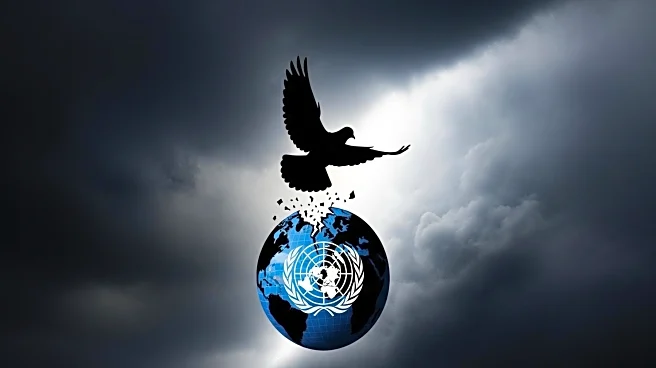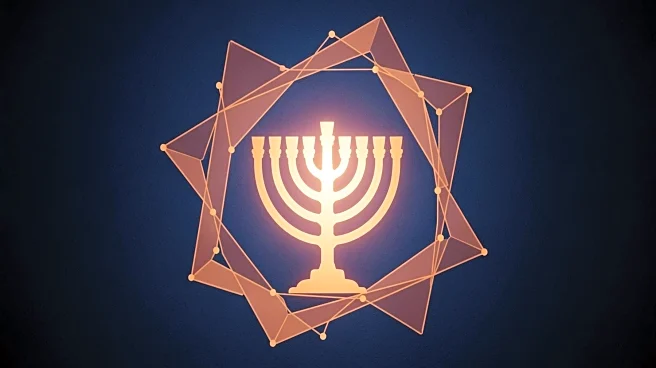What is the story about?
What's Happening?
The United States has vetoed a United Nations Security Council resolution calling for an immediate ceasefire in Gaza, marking the sixth such veto. The resolution, supported by 14 other council members, aimed to address the humanitarian crisis in Gaza and lift aid restrictions. US Deputy Middle East Envoy Morgan Ortagus stated that the resolution failed to adequately condemn Hamas or recognize Israel's right to self-defense. The veto comes as Israeli military operations continue in Gaza, with thousands fleeing the region amid ongoing attacks. The humanitarian situation in Gaza is described as catastrophic by UN officials.
Why It's Important?
The US veto highlights the complex geopolitical dynamics surrounding the Israel-Gaza conflict. It underscores the US's strong support for Israel, despite international calls for a ceasefire and humanitarian relief. The decision may affect US relations with other UN member states and influence global perceptions of American foreign policy. The humanitarian crisis in Gaza, exacerbated by military operations, poses significant challenges for international aid organizations and diplomatic efforts to resolve the conflict. The veto may also impact upcoming discussions at the UN General Assembly, where Gaza is expected to be a major topic.
What's Next?
The US veto sets the stage for continued diplomatic tensions at the UN, particularly as world leaders prepare for the General Assembly. The humanitarian situation in Gaza may prompt further international calls for intervention and aid. The ongoing military operations could lead to increased civilian casualties and displacement, further complicating peace efforts. Key American allies, including the UK, may push for recognition of an independent Palestinian state, potentially altering the geopolitical landscape. The conflict's progression will likely influence future diplomatic and humanitarian strategies.














